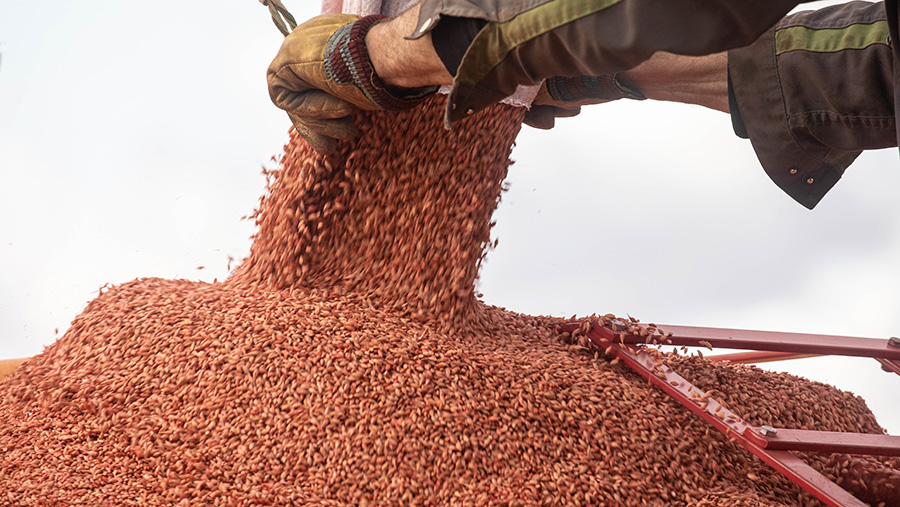Defra confirms continued access to EU-treated seeds and pesticides
 © Tim Scrivener
© Tim Scrivener Farmers and growers will continue to have access to important seed treatments and pesticides from Europe when the current post-Brexit arrangements expire at the end of the year.
It had been feared that access to such products would be lost after 2023.
But secondary legislation laid in parliament this week will ensure that seeds treated in the EU with EU-approved pesticides may continue to be imported until 1 July 2027 – a three-and-a-half-year extension to the existing transitional arrangement.
See also: Parallel imports of pesticides ‘cliff-edge’ must be avoided, NFU says
“These treated seeds are particularly important for maize – a crop that is crucial for dairy farmers and in energy production,” said a Defra spokesman.
Furthermore, cheaper EU pesticides that are identical to those authorised in Great Britain can continue being shipped in and sold, under so-called “parallel import arrangements”, for a further two years.
“Global events have led to price increases across a range of important sectors, meaning the need to access cost-effective plant protection products has become more acute,” said the spokesman.
‘Impacts and concerns’
Defra farming minister Mark Spencer said the government had recognised the threat to farmers and growers and the transition period neared an end.
“The measures announced today will address the potential impacts and concerns raised by our valued farming sector,” he said.
Defra hopes that, by extending the existing arrangements, “manufacturers will have time to submit full applications for GB authorisations for seed treatments in order to ensure they can continue to benefit from the UK market”.
“We are also encouraging farmers to develop and adapt their practices, including through integrated pest management approaches, which can increase resilience by diversifying crop protection techniques,” it added.
New paid actions within the Sustainable Farming Incentive in England would help to achieve this.

